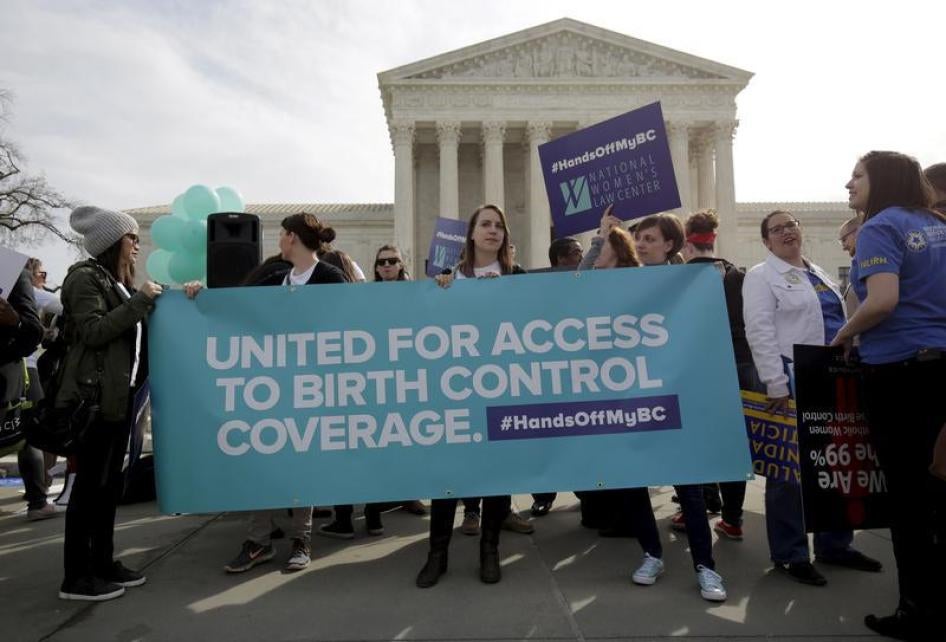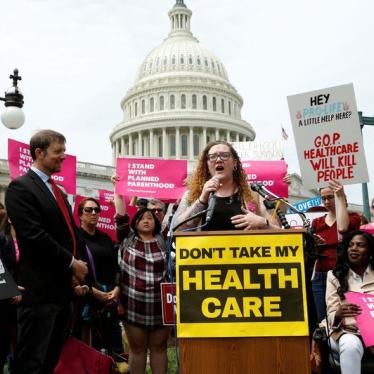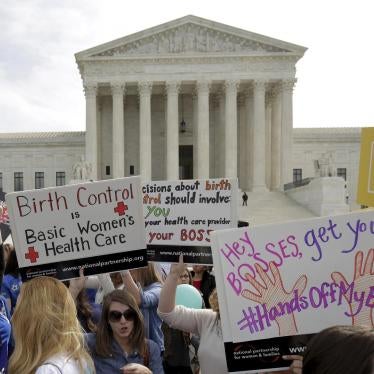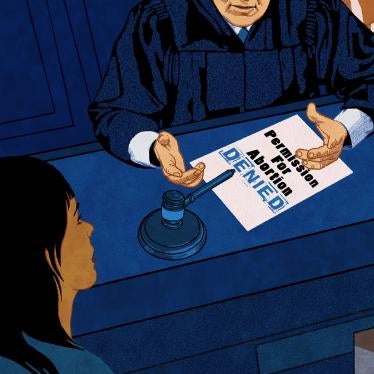US employers can now exclude some or all contraceptive methods from their employee’s healthcare coverage, based on their “religious beliefs and moral convictions,” because of two interim rules issued by the US Department of Health and Human Services today.
The two rules put many women’s access to contraception in jeopardy, undoing protections for women’s reproductive healthcare in the wake of another failed Congressional attempt to dismantle the Affordable Care Act.
Under the Affordable Care Act, health insurers and employers who provide coverage are required to include certain preventative services, including contraception, in their plans. Religious employers were exempted from the contraception requirement, and religious nonprofit organizations and certain closely held corporations could request an accommodation whereby insurers would provide coverage to their employees directly.
Today’s rules gut this provision, allowing nearly any employer to exclude coverage.
The rules go into effect immediately, allowing employers who choose to avail themselves of this new discretion to deprive their employees of coverage for family planning services and reproductive care. Currently, an estimated 62.4 million adult women are eligible for coverage for preventative services under health insurance provided by their employers. Many could lose access to affordable contraception, potentially forcing those who cannot afford to pay out-of-pocket costs to forego birth control altogether.
The rules are the latest example of the Trump Administration going out of its way to roll back existing legal interpretations and regulatory positions that have helped protect the rights of millions from discrimination and other interference. The Department of Justice recently filed an amicus brief before the Supreme Court arguing that the protection of freedom of expression exempts some businesses from the requirements of state non-discrimination laws that protect LGBT people in the public sphere.
The department today issued new guidance asserting the rights of religious objectors to operate according to their beliefs. Across the US, lawmakers are considering or adopting similar laws that shield service providers from facing consequences if their religious beliefs compel them to discriminate against women, LGBT people, and those of other faiths.
In Alabama, Michigan, North Dakota, South Dakota, Texas, and Virginia, for example, the state is generally barred from taking action against state-funded adoption and foster care agencies that discriminate based on religious beliefs. In Tennessee, counselors and therapists can turn away LGBT people on religious grounds. And in Mississippi, a broad law will take effect next week that protects those who discriminate based on their beliefs that marriage is between one man and one woman, that sexual activity outside of such a marriage is wrong, or that a person’s sex is immutable and defined at birth.
As important as it is to protect the freedom of religion, it should not be used to roll back protections that allow women, LGBT people, and others to access goods and services or exercise their rights.
|
Dispatches
Trump Administration Restricts Access to Contraception
Many US Women could be Affected
Your tax deductible gift can help stop human rights violations and save lives around the world.
Region / Country
Most Viewed
-
April 25, 2024
Burkina Faso: Army Massacres 223 Villagers

-
November 25, 2019
A Dirty Investment

-
April 24, 2024
EU Parliament Approves Supply Chain Law

-
April 27, 2021
A Threshold Crossed

-
April 25, 2024
Lebanon: Stepped-Up Repression of Syrians







